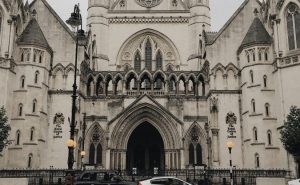
AI cannot patent inventions, UK Supreme Court confirms
The UK Supreme Court has confirmed that AI cannot patent inventions, upholding a previous ruling.
In 2019, the Intellectual Property Office (IPO) rejected a case to allow an AI model to be named as an inventor in a patent application, as reported by BBC News.
Dr Stephen Thaler made a bid for his AI, known as Dabus, to be listed as the inventor of a food container and a light beacon but the IPO threw this out in a decision approved by the High Court as well as the Court of Appeal.
The final court of appeal in the United Kingdom, the Supreme Court, appears to have ended the matter with five judges determining that “an inventor must be a person.”
The Supreme Court ruled an AI model cannot be listed as an inventor to secure patent rights, but interestingly, in this case, the judges did not rule on whether or not Dabus invented the items.
Dr Thaler previously told the BBC that if this form of a patent was rejected, it could lead to innovations being copied with nefarious intentions, stating, “acts of dishonesty, maybe even criminality, will be encouraged. I don’t think society at large wants these things to happen.”
Potential legislative changes due to AI
The IPO is said to have been pleased with the outcome of the judgment, but it stressed the government would need to monitor the law around this field to ensure that patent systems remain compatible with AI use in the UK.
On this note, there has been dialogue on how governments might need to adapt laws in the future to keep up with technological developments.
Simon Barker of law firm Freeths touched on the judgment, adding, “There are similar debates in other areas of intellectual property rights too,” citing the example of copyright in AI-generated works.
“Is the programmer of the AI the creator, or the user who is responsible for prompting the machine? And what if it really is just the machine itself, like Dr Thaler claimed of Dabus?”
Image credit, Lina Kivaka, pexels.com




